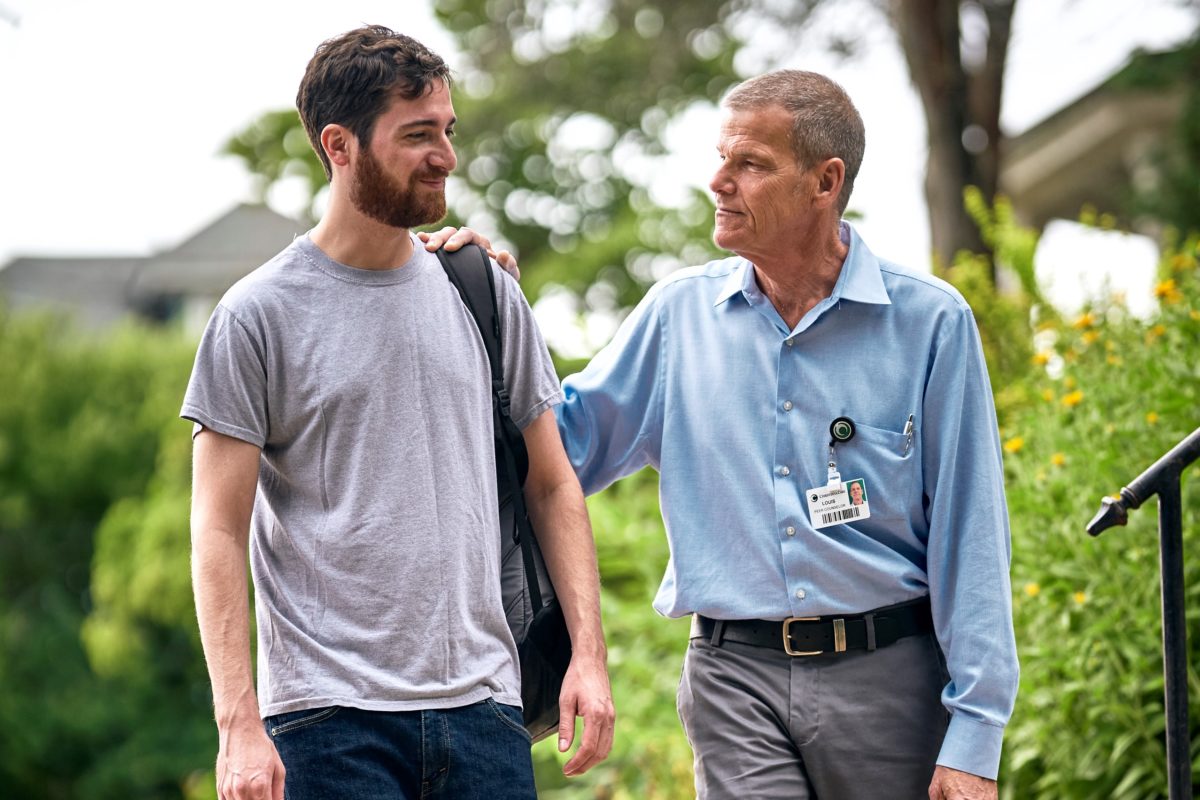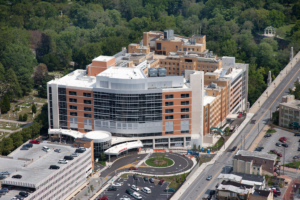When life throws its punches, the journey to healing begins with hope.
Christiana Care’s new Center for Hope and Healing at Wilmington Hospital will help some of the most vulnerable members of the community improve their medical and behavioral health while addressing social barriers that can undermine their success.
This unique, comprehensive approach to health supports patients who struggle with significant mental illness as well as a chronic medical condition or a significant social need, such as homelessness, hunger or addiction.
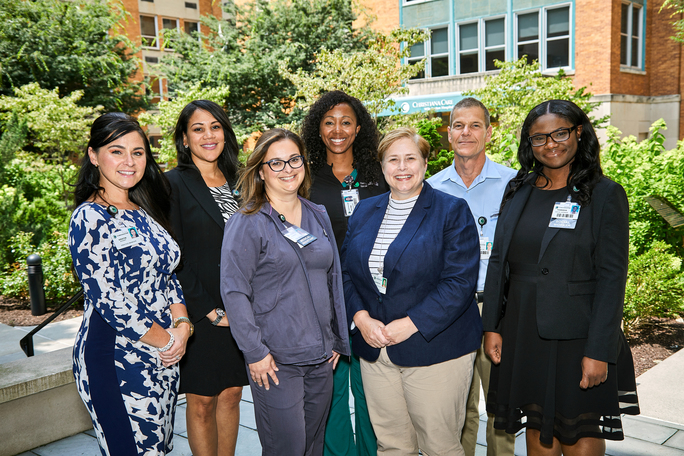
By addressing both medical and non-medical needs that can impede good health, the center’s innovative level of extended care will help patients to achieve better health and prevent unnecessary emergency department visits, hospitalizations and readmissions.
“We understand the challenges that our patients face, and we are here to walk with them every step of the way on the road to meeting their health goals,” said Linda J. Lang, M.D., chair of the Department of Psychiatry and medical director of the Behavioral Health Service Line at Christiana Care. “We are not only healing bodies and minds with excellence; we are serving souls with love.”
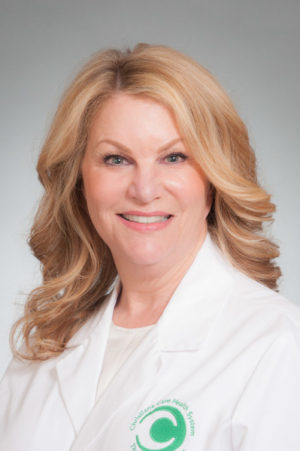
The Center for Hope and Healing offers a specialized combination of:
- Behavioral health to treat complex needs such as bipolar disorder, schizophrenia and severe depression.
- Community interventions to address social determinants of health, such as homelessness, food insecurity and addiction.
- Primary care to help patients take control of their health and appropriately manage chronic conditions such as diabetes and high blood pressure.
Diane Bohner, M.D., MS, FACP, clinical lead for the new center, said her team will serve the individuals who need help quickly and require intensive attention, especially early in their journey.
“We’re going to wrap around these patients with services, stabilize them, get them back to functioning and set up a plan to help them manage both their physical and mental health,” she said.
“For many patients, the help provided by the Center for Hope and Healing will make all the difference.”
Care from every angle
Initially, the center will serve about 200 patients who are identified as needing this enhanced level of coordinated care. Patients may be referred from Wilmington Hospital, including Wilmington Hospital’s adult primary care practices, and Christiana Care’s CareVio Community Team program, which already serves a wide variety of people in the community with complex medical and non-medical needs.
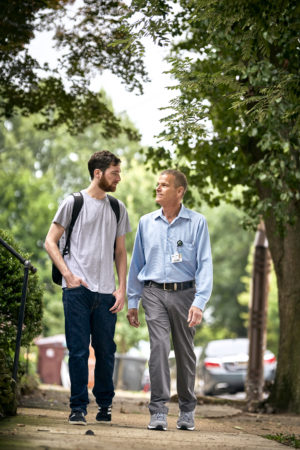
Patients with complex needs are often high users of acute health services. This population comprises fewer than 10 percent of all patients but accounts for more than 20 percent of all hospital visits.
“This kind of coordinated care for patients with complex medical and non-medical needs benefits everyone,” Dr. Lang said. “By helping them to overcome their barriers to health and more effectively manage their behavioral health and chronic medical conditions, we help them to live the healthy lives they want to live. At the same time, we are helping them to prevent the need for emergency care or hospitalization, which means that we are potentially reducing their cost of care.”
The Center for Hope and Healing team will coordinate all medical, behavioral health and community resources and will connect with participants regularly for an average of nine months to ensure compliance or to break down additional barriers.
The program is built on a successful pilot funded by the Delaware Health Care Commission. The pilot also indicated improvements among patients in adhering to preventive health measures, such as mammograms and immunizations.
The seven-member Center for Hope and Healing team offers:
- Expedited appointments for psychiatric care and behavioral therapy.
- Control of chronic medical conditions, wellness physical exams and preventive care.
- Comprehensive evaluation of social determinants of health and interventions leveraging community, state and federal resources.
- Home visits to improve the understanding of social determinants of health.
- Flexibility for hours and location of care — when and where care is needed, including out in the community outside of traditional weekday office hours.
Where they need us
Flexibility will be key, said Dr. Bohner. If a patient struggles with severe anxiety and is not ready to leave his house, Dr. Bohner may send a community health worker to form a relationship with him. Video visits or secure texting will allow them to communicate until the patient is ready to travel to the office.
If a young woman has to take a bus to an appointment at Wilmington Hospital and arrives 30 minutes late, the team will find a way to see her. If a patient is too sick to come into the office, the center’s nurse might go to the shelter where the patient is staying.
The team also focuses on what the patient wants to accomplish. If a patient wants to get his diabetes under control, but is not yet ready to seek treatment for substance abuse, the team is not going to send him away, said Dr. Bohner.
“We’re certainly going to chat about the substance abuse, but we are going to help him based on his goals and where he is now,” she said. “To get someone to a place where he is ready to stop a substance use disorder, I need to first build a trusting relationship.”
Once services are in place to support sustainable health and the patient demonstrates skills to access and manage medical, behavioral and social health needs, the Center will transition the patient back to his or her primary care provider.
Amy Marston, MPH, corporate director, Behavioral Health, said the program is designed to make patients feel comfortable and welcome.
“We are their support system and we will meet them where they need us — in our practice, out in the community, in their car, at their place of worship.”
Treating social health needs matters just as much to us as treating medical needs, said Marston. “This is going to change lives.”
To learn more about the Center for Hope and Healing, call 302-320-2100.
